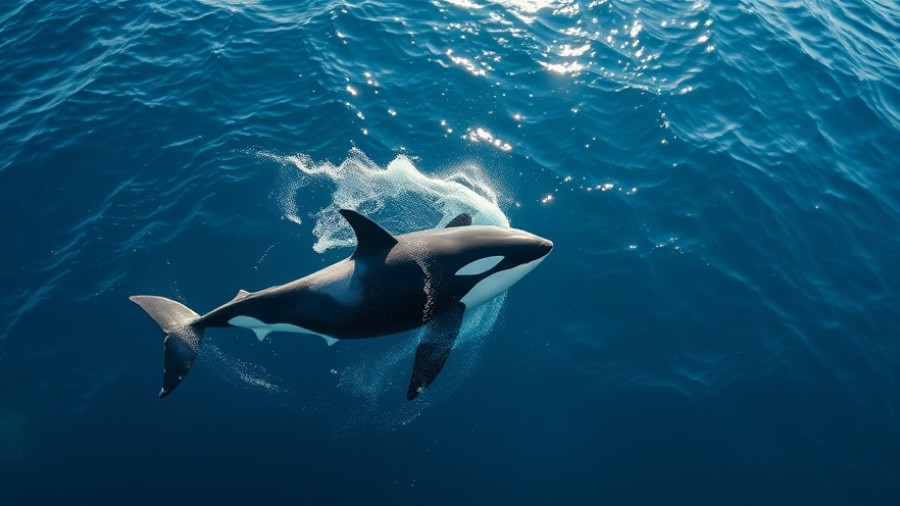
The Intelligent Predators of the Ocean
Recent footage from the Gulf of California has unveiled shocking new behaviors among orcas, known as killer whales, that are worth exploring. In what may be a first in the world of marine biology, a pod of orcas has been observed flipping juvenile great white sharks onto their backs, a technique that allows them to prey on these once-mighty apex predators. This sophisticated hunting tactic reveals the advanced intelligence and social learning capabilities of orcas, suggesting that these marine mammals are not just fearsome predators but also strategic hunters.
Details of the Hunt
Captured aerial footage shows a pod of five female orcas executing a coordinated attack on juvenile white sharks, a behavior that might have been limited to adult great whites until now. Marine biologist Erick Higuera recorded these hunts, proving that the orcas utilize a method called tonic immobility: by flipping the shark upside down, they induce paralysis, making it easier to access the nutrient-rich liver of the shark. This hunting strategy not only speaks to the orcas’ strong social dynamics but also raises questions about their adaptability in an ever-changing environment.
Shifting Diets in Response to Climate Change
According to the study, climate changes have reshaped the circulation patterns of the ocean, inadvertently pushing young great white sharks into orca hunting grounds, and exposing them to predation. Previously, orcas were primarily known for targeting adult great whites, which provide significantly more meat per catch. However, their focus on juvenile sharks now suggests an adaptation most likely responding to environmental shifts, an essential insight into how climate change can influence predator-prey dynamics in the marine ecosystem.
The Social Aspects of Orca Hunting
The observations document not only the hunting strategy but also signal the remarkable social structure of orca pods. Dr. Salvador Jorgensen has noted that adult great whites are quick to vacate areas when orcas are present. However, juvenile white sharks, lacking this instinctual flight response, may be easier targets for the crafty orcas of the Moctezuma pod. This indicates a learned behavior that could be passed through generations and denotes the significant cognitive abilities inherent in these animals.
The Conservation Implications
The emergence of this hunting behavior among orcas raises critical conservation questions. As marine biologists investigate further, it becomes clear that understanding the feeding behaviors of orcas can potentially inform initiatives to protect shark populations and, subsequently, the balance of marine life. Safeguarding these habitats could mitigate the human impact on these ecosystems and help maintain the predator-prey relationship vital for ocean health.
Connecting with Beachgoers and Boaters
For those who venture into the waters of California, knowing that orcas are becoming increasingly adept at hunting sharks near the beaches may lead to a deeper sense of appreciation for these magnificent creatures. Staying informed about local wildlife interactions enhances the experience of beachgoers and boaters, reminding them of the dynamic and interconnected relationships formed beneath the ocean's surface.
In conclusion, the recent videos capture a striking change in the relationship between orcas and great white sharks. Understanding these changes offers crucial insights for conservation efforts and highlights the adaptability of marine life. It's vital for beachgoers and ecotourists to maintain a conscientious approach toward marine ecosystems.
 Add Row
Add Row  Add
Add 




Write A Comment